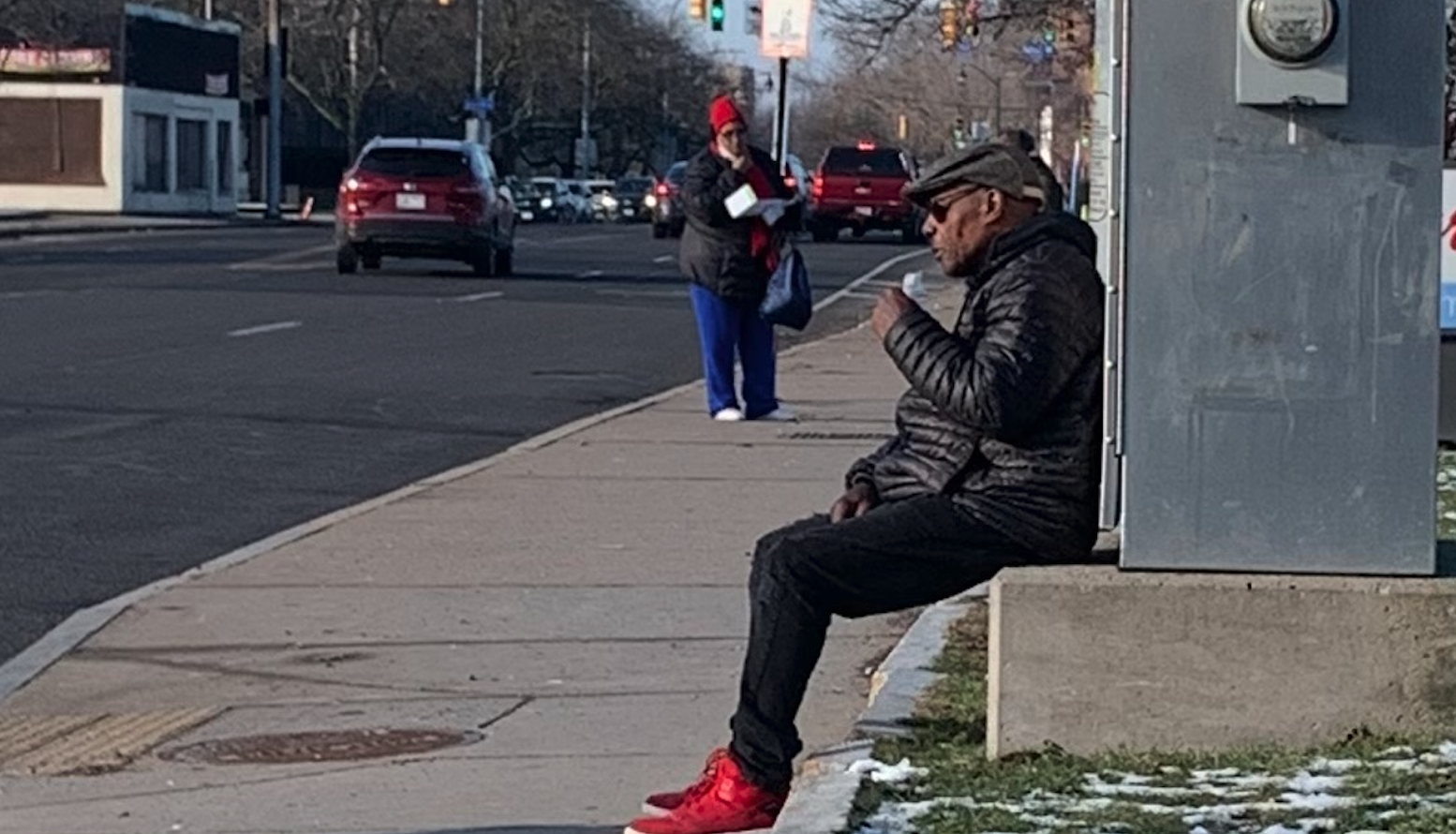
I am not accustomed to living in a place without sidewalks. When asked how I am adjusting to Rochester, I say, “It’s great!” and I list all the positives—the ease of travel, the beauty of the landscape, the varied cultures and events, the kindness of people. If there is one thing I miss about Chicago, it’s strangers on sidewalks. That might sound strange, but it is true; I was used to seeing the world walk by my front door and encountering strangers from every walk of life and culture everywhere I went—on foot, by bike, bus, train, or car. It helped me stay connected to the world we live in and the issues of everyday life, things that are distorted by the media.
So, I notice when I see people walking, there are not many on my drive from home, through Brighton and Henrietta, to the office. My unscientific poll has drawn me to the conclusion that there are three kinds of people who walk along streets with no sidewalks: exercisers, dog walkers, and people with no other options. Sometimes the runners and walkers wear bright vests, which seems wise, as I have felt that I was taking my life in my hands as I walk on East Henrietta Road to the Fireside Grill or the Post Office. It’s those who have no other option that worry me most; I see them in winter without gloves, in the pouring rain, carrying heavy bags.
You may read this as an op-ed, urging our towns and cities to build more sidewalks and wider shoulders (piled snow gives even fewer options for walkers). I certainly would encourage you to learn more about Reconnect Rochester, whose vision is a Monroe County “community connected by a robust transportation network that makes it easy for everyone, regardless of physical or economic ability, to get around.” But this is also a spiritual reflection, an encouragement to think about what it means for a community to work for the common good.
Perhaps you too have been reading about the efforts of the mayor and city council of Toms River, New Jersey, to seize the church and property of Christ Episcopal Church through eminent domain, just as the church proposed building affordable housing for folks transitioning from homelessness. To claim eminent domain, the city must prove it needs the land for a demonstrated need. Whose common good is more important? Those who need a park and pickleball courts, or those who need homes?
As the United States Senate debates the new budget bill, which cuts programs for the poor and lowers taxes for the wealthy, it is important for Christians to speak up for our vision of the common good. Every time we gather for worship, we hear God’s vision for all people. We hear it in Hebrew scriptures as prophets call us to care for the orphans, widows, and the strangers in our land; even to the point of declaring a year of Jubilee every seven years, when debts are forgiven, slaves freed, and land allowed to remain fallow.
We hear God’s vision in Jesus’ mission statement in Luke 4, when he reminds us that the God Project is to bring good news to the poor, release to the captives, sight to the blind, and freedom to the oppressed in the here and now. We hear God’s vision for the Christian community in Matthew 25 as the people who feed the hungry, sate the thirsty, clothe the naked, welcome the stranger, and visit those in prison.
Perhaps it is a little easier to ignore Christ’s call when it doesn’t walk by our front door, but not knowing does not exempt us from the call. If you don’t see the need in your pews on Sunday, heed the call of our deacon’s dismissals: “Let us go forth into the world…” and “Let us go forth in the name of Christ.” Get out into the streets, visit the poorest parts of your town, go to the jails and prisons, play in the parks, read in the library. And maybe build some literal and figurative sidewalks!
